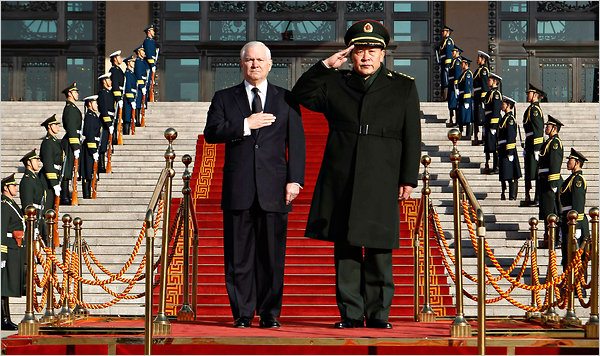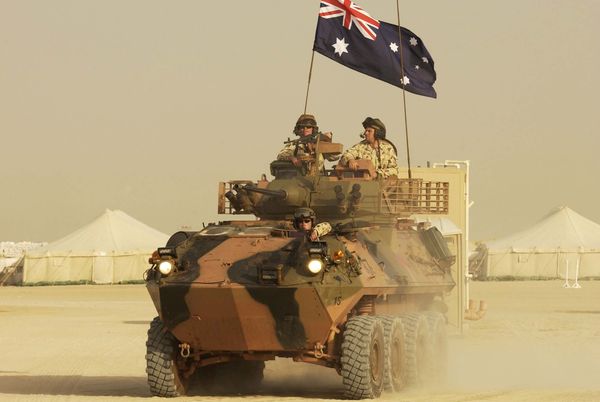China is questioning the value of Washington’s plan to strengthen military cooperation with Australia and update its defense treaty with the Philippines. Chinese Foreign Ministry spokesman Liu Weimin called for discussions about the boosting of American troop deployment in East Asia, questioning just how cooperation would benefit the international community.
U.S. President Barack Obama has announced an enhanced security agreement with Australia providing for up to 2,500 military personnel to be stationed in the country in the coming years. In the Philippines, Secretary of State Hillary Clinton signed a declaration reaffirming a longstanding mutual defense treaty between the countries.
In Beijing, Chinese foreign ministry spokesman Liu Weimin expressed reservations about the measures.
China wary of containment
He questioned how the United States will justify the expense of its East Asia military expansion in the face of what he described as the sluggish global financial situation. He also questioned the benefits of such cooperation, saying any “outside interference” would affect the peace, stability and development that both Washington and Beijing say they want.
On his arrival in Australia Wednesday, President Obama said U.S. troop deployments would help maintain what he described as the security architecture in Asia, assist with quick responses to humanitarian disasters, and respond to threats to the region’s crucial sea shipping lanes.
In Beijing, the strengthening of Washington’s military alliances is likely to be seen as an attempt at containment. Foreign Ministry spokesman Liu refused to answer directly when asked if Beijing objected to the troop deployment in Australia.
Instead, he said China has never engaged in any kind of foreign military alliance like those formed by the United States. And he said China has its own opinion on how to maintain stability in the region.
Simmering South China Sea dispute
Liu said Beijing is sticking to what he described as the “path of peaceful development” in order to realize the common aspiration of the international community.
During the past 18 months, China has been seen by many of its neighbors as becoming more outspoken in claiming territorial rights in the mineral-rich South China Sea. The dispute is likely to be discussed at this week’s East Asia Summit, which the U.S. president is attending for the first time.
China opposes any discussion of the issue, saying it prefers to settle disputes one-on-one with the countries involved. That approach, though, is causing increasing friction.
Obama and other U.S. officials repeatedly have said America welcomes a China that is strong and prosperous, and that his government has no intention of containing Beijing.
Liu said Wednesday that China hopes Washington will keep its word.










